Precede vs. Proceed
What is the difference?
Precede and proceed are two commonly confused words in the English language. How do you know when to use each one?
Both words are verbs, and their spellings are very similar. Their pronunciations are similar too! However, the definitions of the two words are not related. It is important to learn the difference between precede and proceed because one word is used to talk about the past, and the other is used to talk about the future. You wouldn't want to mix them up!
Let's look at some examples to help you understand the difference.
Click Here for Step-by-Step Rules, Stories and Exercises to Practice All English Tenses
Precede
The word precede means to come before. It can be used in the sense of to come before in time or to come before in position, or physically.

It can mean either directly before, or sometime/somewhere before. The opposite of precede is to follow, or to come after.
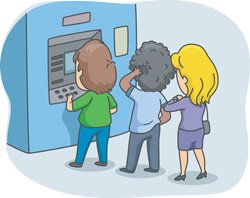
Precede is a regular verb (precede, preceded, preceded). The word is often used to talk about lists of events, especially in history.

A useful way to remember the definition or precede is to look at the prefix, pre-. This prefix comes from Latin and means before. Words that begin with pre- are usually related to the concept of prior or previously.
Other examples of this pattern are prearrange (organize before), pre-book (reserve before), preheat (warm up before) and even prefix itself (letters added to the beginning of a word).
Precede has a noun form, precedent. A precedent is a similar action or event that happened before. This concept is often used in law.
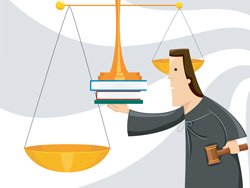
There is also an adjective related to the word, unprecedented. Something that is unprecedented is something that has never happened before.

Examples:
- The American Revolution preceded by the French Revolution.
(The American Revolution came before the French Revolution.)

- In British history, the reign of King Henry VIII preceded that of Queen Elizabeth I.
(The period during which King George VI ruled came before the the period during which Queen Elizabeth II ruled.)

- When you catch a cold, feelings of fatigue often precede other symptoms such as sneezing and coughing.
(When a person is sick, they often experience feelings of tiredness before they feel other symptoms.)

- Weddings are typically preceded by many months of preparation.
(Months of preparation happen before a wedding.)

- In the Fibonacci sequence (0 1 1 2 3 5 8 13…) the number 3 precedes the number 5.
(The number 3 comes before the number 5 in the Fibonacci sequence.)

Proceed
The word proceed has two definitions. On the one hand, it can mean to move forward, or to continue.

The word can be used to describe physical progress, as in "We proceeded down the main road until we arrived at our destination" or figurative progress, as in "Let's proceed with the investigation."

Proceed also means to originate from or to come from. This use of proceed is quite formal. For example, "The sound of applause proceeded from the auditorium," and "Singing sounds proceeded from their room."

Like precede, proceed is a regular verb (proceed, proceeded, proceeded).
Proceed also has two noun forms. The word proceeds means money that is raised by an event or activity. When charitable organizations host events, they earn proceeds.

Keep in mind that when proceed is a verb, the stress is on the second syllable (pro-CEED). When the word is a noun, the stress is on the first syllable (PRO-ceeds). The noun proceeds is always plural.
From proceed, we also get the noun proceedings. Proceedings means a series of events or activities. The word proceedings is often used in business and legal settings.
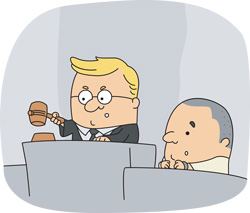
Examples:
- Please proceed carefully.
(Please continue with caution.)

- When are we going to proceed with the presentation?
(When are we going to go on to the presentation?)

- The power of the presidency proceeds from the constitution.
(The president's power comes from the constitution.)
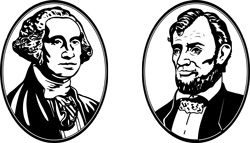
- The organizers raised more proceeds than they were expecting.
(The organizers raised more money than they thought they would.)

- The proceedings will begin at 9am in the local courthouse.
(The events will start in the courthouse at 9am.)
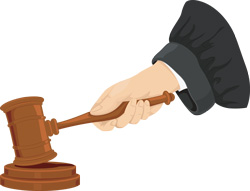
A Story to Practice Precede vs. Proceed
Hannah works as a judge. Her days typically begin at 9am, when people proceed to the courthouse to explain and to listen to testimony. Needless to say, her workday is preceded by a healthy breakfast – otherwise she wouldn't be able to proceed! Sometimes her days at work are also preceded by a trip to the gym, because keeping in shape is important too.
In the courthouse, proceedings are very formal. Hannah has to wear a long gown and a wig. She had never worn a wig before taking this job. Dressing up in one was unprecedented!
Hannah's current case concerns some missing proceeds. The money was lost after a charity event. Hannah hopes they find the thief. As soon as they do, he or she will proceed straight to jail. And then Hannah will proceed on to her next case!

Quiz
Answer the following 10 questions and then check your answers. Each question is worth 10 points.
Part 1:
- Which option is a correct definition of precede?
- To originate from
- To come before
- To continue
- To carry on
- Which option is a correct definition of proceed?
- To come after
- To be prior to
- To raise money
- To move forward
- Which sentence is written correctly?
- I'm surprised! That was unprecedented.
- When will the show precede?
- We can't precede yet. I'm not ready.
- The typewriter proceeded the computer.
- Which of the following is written incorrectly?
- The lawyers aren't sure how best to proceed.
- Which US president preceded Theodore Roosevelt?
- The proceedings took place over the course of three days.
- In my opinion, we should precede slowly.
Part 2:
- King Lear was __________ by other famous plays such as Romeo and Juliet and Hamlet.
- proceed
- precede
- proceeded
- preceded
- Are you ready to __________?
- proceeding
- proceed
- preceding
- precede
- Did the French Revolution __________ the American Revolution, or did it come after?
- precede
- proceed
- precedes
- proceeds
- After winning the French Open in 2005, Rafael Nadal __________ to win many other tennis championships.
- proceeding
- preceding
- proceeded
- preceded
- How much did the __________ amount to?
- proceed
- proceeds
- precede
- precedes
- After the break, we'll continue with the __________.
- proceedings
- proceeding
- preceding
- precede
Answer Key
Part 1: 1. B | 2. D | 3. A | 4. D
Part 2: 1. D | 2. B | 3. A | 4. C| 5. B | 6. A
Get Updates, Special Offers, and English Resources
Download your FREE GIFT (the first two chapters of
English Short Stories Book and Workbook)
as soon as you join!

By submitting your email, you consent to receiving updates and newsletters from us and to the sharing of your personal data with third parties for the purposes of sending you communications. We will not spam you. You can unsubscribe at any time. For more information, please see our privacy policy.





